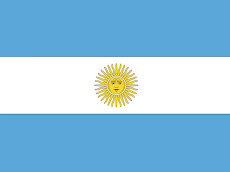Sorry for the super long post, but it’s been a while…
“One of Africa’s great journeys”

An approximate map of our travels
These simple words from a Tanzanian guidebook, which we misquoted as “greatest journey” led us to the MV Songea, a small cargo and passenger ferry, which travels overnight down the Tanzanian side of Lake Nyasa. Great can connote either something incredibly positive or something simply large and impressive. The first part of our adventures through Southern Tanzania was great in the first sense. The ferry ride down the lake epitomized the second sense of great.
With nothing pre-arranged but our bus ticket, we began our travels last Saturday at 6 AM on a Scandinavian Express bus, a more reputable bus company with comfortable seats, snacks, and weird old movies playing on a screen in the front. In Mbeya, 13 hours later we found a cheap hostel (we paid about 7 dollars per room for 2 rooms between 5 people). The next day, we woke up early and reveled in the chill air of the mountain town after Dar’s humid heat. Although tour companies were closed on Sunday, we found a guide who may have ripped us off a little, but didn’t rob or injure us (although he is the first Tanzanian I’ve met to like President Bush better than Obama) and he led us up a strenuous hill to the breathtaking Ngozi Crater Lake.
The next day, we moved on to Tukuyu, an even colder town. We explored the market until a strange man followed us declaring his love for Mzungu (my white friends) and Mchina (me of course). That night, hanging out at the hotel bar, we used our new favorite defense against predatory Tanzanians—tell them us 4 women are the one man, Tony’s wives. People seem skeptical, but because some Tanzanian tribes allow polygamy, they generally ask if they can have one of us. I sometimes worry a little that he’ll actually sell me someday.
From Tukuyu, we used a legitimate tour company for a change and took a private van to Kaporgwe Falls, where we ate a beans, rice, spinach, and chapatti in a cave behind the falls. Three of us decided to swim a little in the cold fresh water, but I had trouble breathing and swam to clutch rocks on the side of the pool. Meanwhile, our van driver tried to join us, but didn’t know how to swim. He grabbed on to my friend, who thought he was either teasing or attacking her. Luckily, Tony pushed her to the edge and helped the driver to safety, but we journeyed back in a more somber mood. I’m learning that there is a different concept of safety here. Many Tanzanians never learn to swim and yet have no fear of the water. In the van, my friend linked her arm in mine and I was grateful she was safe, but wished I hadn’t felt so powerless to help her when she was in danger.
After Tukuyu, the trip transitioned to the second definition of great. To catch the ferry at Itungi Port, we had to spend one night in the hot, dusty town of Kyela in a cheap hostel, which we now believe is rented by the hour. Noises of all sorts kept us up until late at night. The next morning, we negotiated a lift to Itungi Port. Before the boat ride, we prepared ourselves mentally for the adventure, the sketchy bathrooms, and being the only non-Tanzanians aboard, but not fully for the incredible sea sickness. Despite buying “first class tickets” so we were able to sit outside on the top floor of the ferry unlike most passengers, who ride in the belly of the ship, within 10 minutes of sailing, I was leaning over the side, willing myself not to feel ill. Within 3 hours, I had run to back of the boat, accidentally kicked a live chicken, thrown up over the edge, started feeling sick again, and gone to bed, where I spent most of the next 22 hours. All four of us girls either slept or felt sick the entire trip, while Tony tried to convince us that sea sick is a state of mind. It was exciting to peak out at night when we docked and watch whole villages come out to receive their weekly shipments of soda, sugar, soap, cement…etc…and local women wade in the water to sell cassava and fish to ferry passengers out of buckets attached to sticks. Otherwise, I laid in bed, hoping the boat wouldn’t be tipped over by a big wave while smelling our peanut butter that had fallen off the shelf, broken and spread all over the floor in water from a water bottle that also fallen and cracked.
We were delighted to finally dock at Mbamba Beach, a tiny town, where we ate cheep grilled corn, had no electricity, and were followed by crowds of children. I felt like the Pide Pipelin of Hamlin as we walked along the beach surrounded by 30 kids, who tried to hold our hands and sing for us. They were certainly never told not to talk to strangers.
It took us two days to bus home and the last bus we took back was an appropriate end to our adventure. We got back to Dar within 13 hours, the time the journey was supposed to last (punctual buses are unbelievable in Tanzania), but we drove so fast and stopped so rarely (as we drove through towns, local vendors would run to bus trying to sell grilled corn, cookies, nuts, drinks, and fruit through the bus windows, but as they got close, we would speed on past), that I spent the journey wondering whether I was trapped in the movie, “Speed,” and fearing that we would either drive off the edge of a cliff or tip over before returning to Dar. But more or less, we made it safely back and were pleased with our adventures, but also pleased to shower and sleep in our own beds that night.
I’m glad we found the courage to take a real adventure. The farther south we went, the less nice hotels, less running water, white people, and English-speaking Tanzanians we met. It made me glad to be able to speak a little Swahili and want to learn more.
Back in Dar, school won’t start until the end of September. I keep myself pretty busy playing at the orphanage, teaching English to wood carvers at Mwenge Market, studying Kiswahili, exploring Dar…etc…but I still feel like school should be starting soon. I’m hoping that I’m learning to relax a little and live with unstructured time, and am glad I’ll have time to travel some more before classes start. We’ll probably be heading out again sometime next week to hike around the base of Mt Kilimanjaro and take a short safari.
Yeah D-Sam! Thanks for writing.
Sorry again for the extra long post.






































